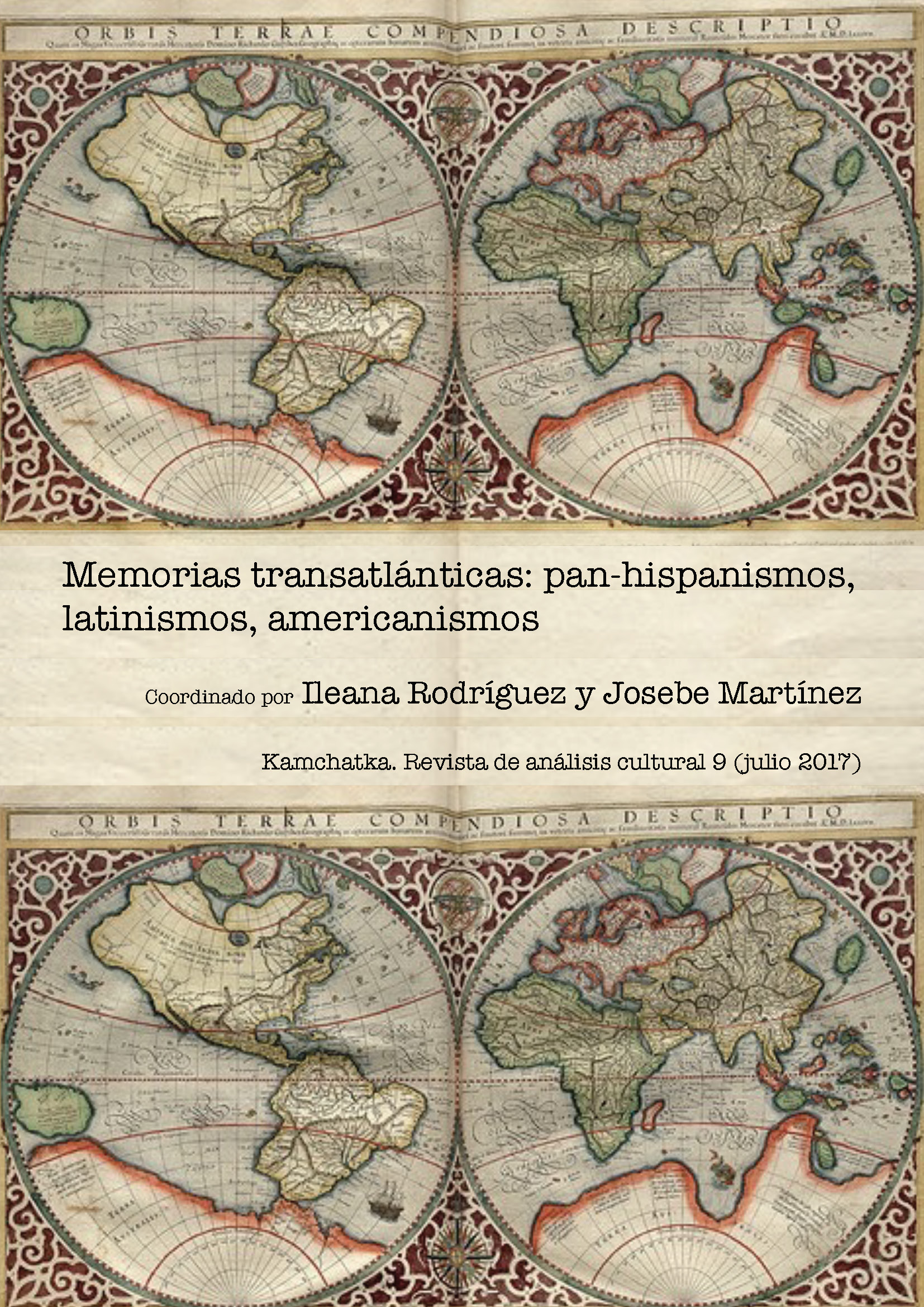Una revisión histórico-política de la producción literaria puertorriqueña. Entrevista con Fernando Feliú Matilla / A historical and political review of Puertorriquean Literatura. Interview to Fernando Feliú Matilla
DOI:
https://doi.org/10.7203/KAM.9.10150Keywords:
Literatura hispanoamericana, Literatura puertorriqueña, Estados Unidos, emigración, politica, Abstract
Abstract
Resumen: A lo largo de la siguiente entrevista, el profesor, historiador, crítico e investigador la de la Universidad de Puerto Rico, el catedrático en literatura puertorriqueña don Fernando Feliú Matilla, nos permite establecer una visión histórica de la génesis artística llevada a cabo en la Isla a través de los diferentes contextos socio-políticos que han tenido lugar en la misma desde la aparición de una literatura puertorriqueña propia y distintiva hasta la anexión de Puerto Rico a los Estados Unidos de América como Estado Libre Asociado en 1952 y su impronta en la génesis isleña. Si bien la entrevista tiene como objeto principal la literatura boricua, también se debaten en la misma el falocentrismo cultural presente en la cultura puertorriqueña, las relaciones políticas entre San Juan y Washington D.C., la influencia de los textos diaspóricos en la producción isleña o la situación del panorama artístico actual en Puerto Rico.
Palabras clave: Literatura hispanoamericana; Literatura puertorriqueña; Estados Unidos; emigración; política.
Abstract: Throughtout the following interview, professor Fernando Feliú Matilla, who holds a chair in Puerto Rican Studies and Literature, offers his personal point of view after years of research about Puerto Rican literature written in the 20th century. The interview is developed from a historical perspective, which means that it starts right from the moment Puerto Rico was still a Spanish colony in the Americas, until the present day, being Puerto Rico a Free Associated State of the United States of America (also known as American Commonwealth of Puerto Rico). Besides the literature, professor Feliú Matilla also gives his opinion about the absence of female writers in Puerto Rican literature, the relationships between San Juan and Washington D.C., the cultural movements that Puerto Rican literature written nowadays is influenced by, and many other different topics such as Caribbean literature written in the United States and its connection with Puerto Rican art.
Keywords: Hispanic Literature; Puerto Rican Literature; USA; immigration; politics.
 Downloads
Downloads
Downloads
Published
How to Cite
-
Abstract1226
-
Entrevista (Español)916
Issue
Section
License
This journal provides an immediate free access to the content on the principle that freely make investigation available to the public, which promotes an increased global knowledge exchange.
Unless otherwise indicated, texts published in this journal are under the license Attribution-NonComercial 4.0 by Creative Commons. These texts may be copied, distributed and publicly communicated whenever the publication’s author and title are quoted and whenever they are not used for commercial purposes. In any case, intellectual property of the articles and its potential economic rights entirely belong to its authors.
The full license can be consulted on https://creativecommons.org/licenses/by-nc/4.0/. We encourage authors to disseminate papers published in Kamchatka. Journal of cultural analysis electronically, in institutional digital repository or in their websites.





